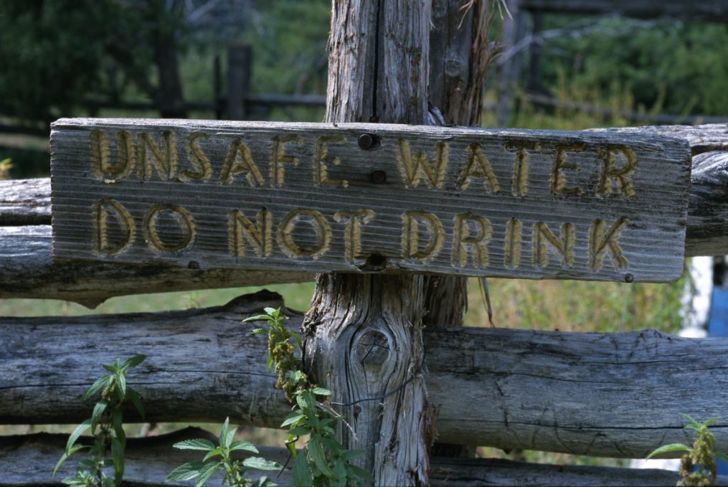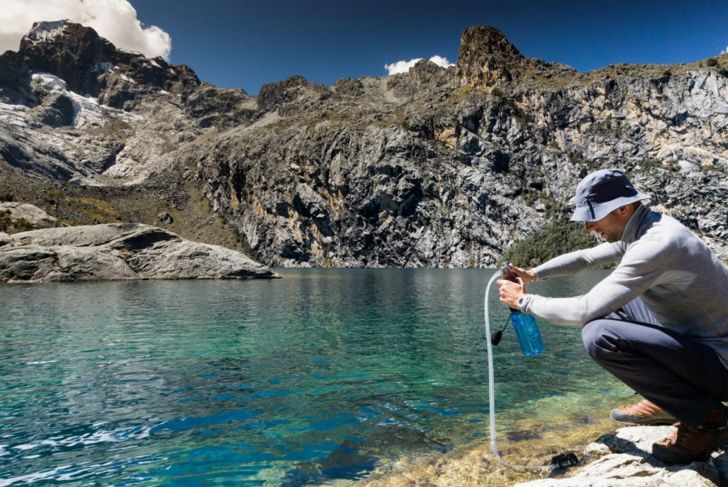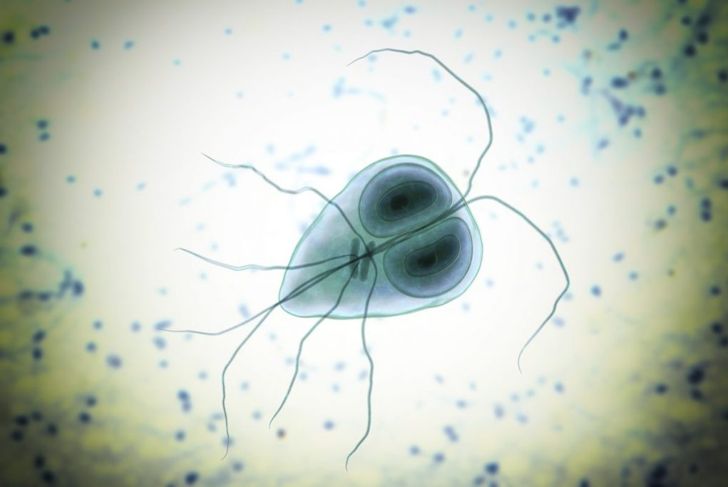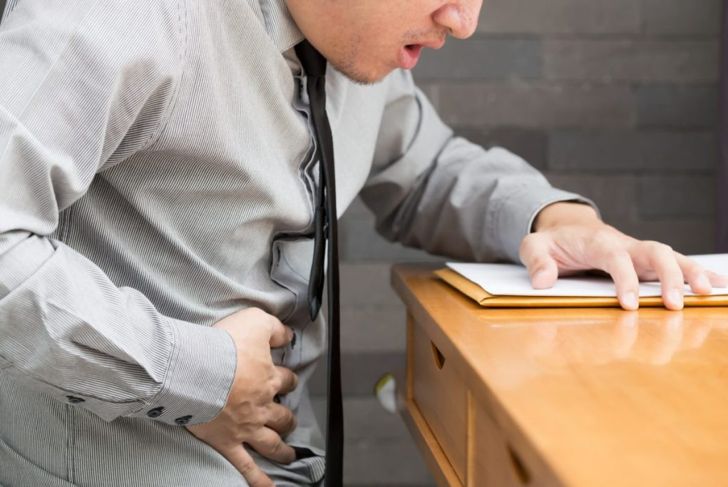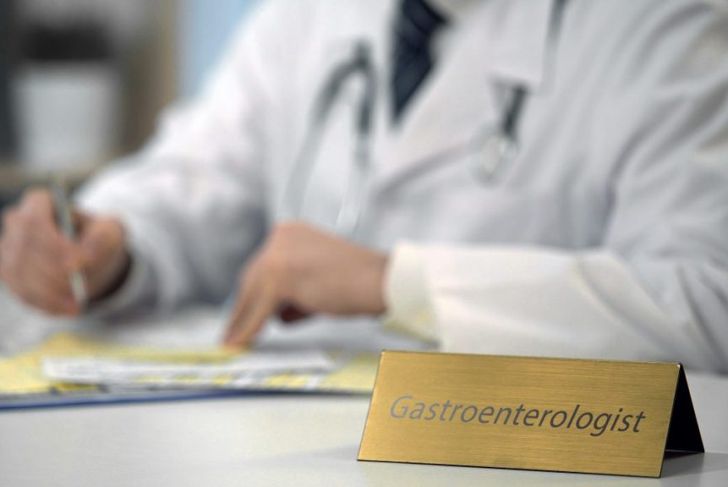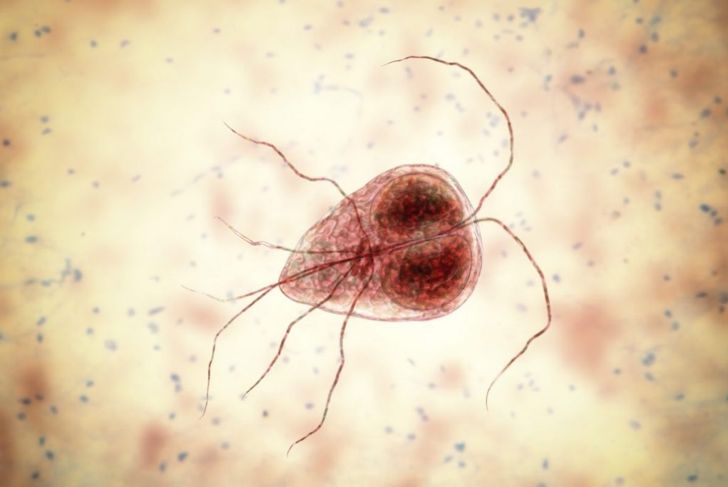Giardiasis is an infection of the intestines caused by a microscopic parasite called giardia. This particular parasite is found in areas with unsafe water and poor sanitation. People become ill after consuming water from contaminated rivers or lakes. The giardia parasite can also spread to food.
Symptoms of Giardiasis
Some people may not experience any symptoms of this rare disease. If symptoms do develop, they often mimic common conditions such as the flu or Norovirus. Infected individuals may experience diarrhea, abdominal cramps, nausea, upset stomach, flatulence, greasy stool, and dehydration. It is essential to stay hydrated, since a number of the symptoms sap the body of fluids.
Causes
The parasite that causes the giardiasis infection is found in various places but must be ingested to infect humans. Giardia is found in untreated water, such as ponds or lakes. If you accidentally swallow water while swimming in a lake that contains the parasite, you may contract giardiasis. The parasite can also enter the body following poor hygiene habits in an infected area, such as failing to wash the hands sufficiently after using the restroom or cleaning up after pets. Undercooked foods or those washed in infected water and not cooked may also transmit the bacteria. The parasite can spread to others through physical contact.
Giardia Parasites
Once ingested, the giardia parasite lives in the intestines of people and animals. It develops an outer shell called a cyst before the body expels it, and this outer shell allows the parasite to survive outside the body for months until ingested by another host. The shell then dissolves, and infection of the new host begins.
Giardiasis Risk Factors
A few specific demographics may have a higher risk of developing giardiasis. Children are especially at risk if they are still in diapers, toilet training, or spend time in a daycare setting. This disease is much more common in children than adults, but people who work in daycares also face increased risk. Those living in rural and wilderness areas are also more susceptible to contracting the giardia parasite. Such individuals should always take care to properly boil or filter water, and cook hunted or scavenged foods well.
When to See A Doctor
People who experience the symptoms of giardiasis for more than a week should see a doctor to ensure no complications, such as dehydration, develop. Such complications can lead to hospitalization. Informing the doctor of recent trips to other locales can help him or her diagnosis the condition and start treatment.
What to Expect at a Doctor’s Appointment
If you think you have giardiasis (or any condition that has left you sick for an extended period), make a list of all of your symptoms, risk factors, and medications. This information will help the doctor develop an accurate diagnosis. At the appointment, the doctor may examine your abdomen. He or she will check for painful areas by pressing down on your stomach, and may also check for signs of dehydration. While giardiasis is treatable by a family physician, you may be sent to a gastroenterologist for a more accurate diagnosis.
Diagnosis of Giardiasis
You may be required to provide your doctor with a stool sample if he or she suspects giardiasis. This sample will be tested for the presence of the giardia parasite. If the analysis comes back as inconclusive, you may be required to provide more stool samples over a period of a few days. When the parasite is confirmed, antibiotics can help rid the body of the infection. The doctor may require further samples following the course of medication to ensure the treatment worked.
Complications of Giardiasis
The complications of giardiasis can be especially dangerous for children. Diarrhea and other gastrointestinal problems can lead to malnutrition, which can harm mental and physical development. Dehydration is another serious complication that can lead to hospitalization. A lack of water interrupts many of the body’s essential functions. Further, people with lactose intolerance can have more extreme reactions to the parasite.
Preventing Giardia Infections
Medication and vaccines cannot prevent giardiasis. The best method of prevention is taking care when traveling in areas that might have infected water and food — know what to avoid and how to properly protect yourself. If you must get water from a natural source, learn the proper way to purify water from lakes and rivers. Water from these sources must be filtered, boiled for at least ten minutes, and reach a temperature of 158 degrees Fahrenheit before it is safe to drink. When you are swimming in ponds or lakes, take care not to open your mouth, to avoid swallowing water that may be unsafe. In general, practice good hygiene, specifically when interacting with children and pets.
The Length of the Infection
Once symptoms begin, it may take anywhere from two to six weeks for them to disappear. Some symptoms may last longer than others. It is essential to contact a doctor if symptoms of giardiasis do not pass after one week. In most cases, however, treatment is not required, and the parasites go away on their own. Be sure to take the proper precautions to avoid spreading them to someone else.

 Home
Home Health
Health Diet & Nutrition
Diet & Nutrition Living Well
Living Well More
More